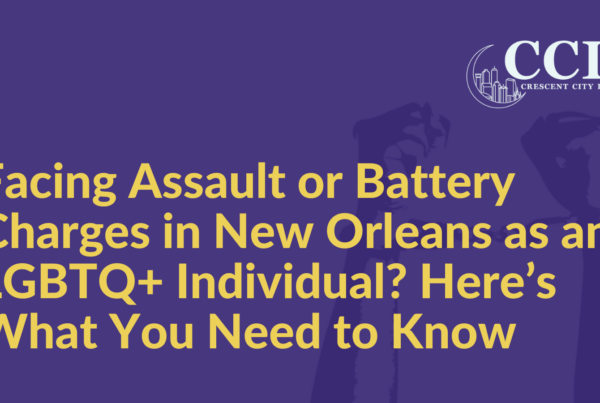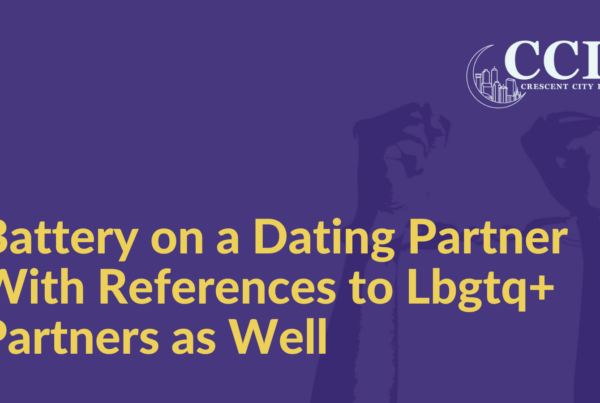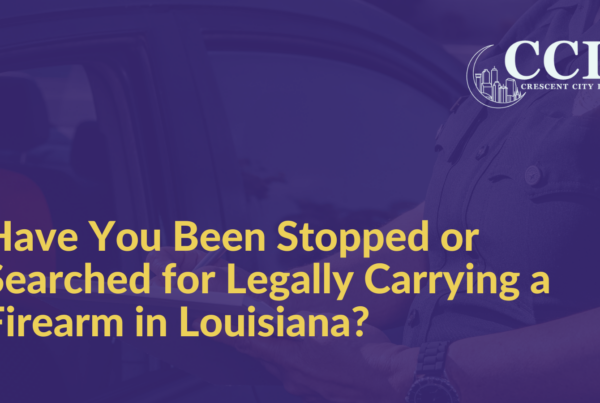At Crescent City Law, we help people in New Orleans navigate tough legal situations, including criminal protective orders. Whether you’re facing charges or trying to understand your rights, it’s important to have the right information. Our team is committed to protecting your rights and making sure the system treats you fairly. If you’re dealing with a protective order, we encourage you to contact us, learn about our team, or explore our criminal defense services.
What Are Criminal Protective Orders?
Criminal protective orders are court-issued directives that aim to protect individuals in cases involving domestic violence, dating violence, stalking, sexual assault, or other violent crimes. Unlike civil protective orders, these are tied directly to criminal cases and are issued at various stages of the legal process.
When Criminal Protective Orders Are Issued
Criminal protective orders may be issued:
- At bail hearings
- During sentencing
- As a condition of probation or parole
- When a defendant is found incompetent to stand trial
These orders can restrict contact with the protected person and impose other conditions necessary for their safety.
Key Louisiana Laws Governing Criminal Protective Orders
Several Louisiana criminal statutes govern the issuance and enforcement of these orders:
- La. C.Cr.P. Art. 313 (Gwen’s Law): Allows detention without bail in domestic violence cases.
- La. C.Cr.P. Art. 320: Sets conditions for bail.
- La. C.Cr.P. Art. 871.1: Covers protective orders as part of sentencing.
- La. C.Cr.P. Art. 895: Lists conditions of probation.
These laws are designed to offer courts flexibility while ensuring victims and witnesses are protected throughout the criminal process.
2025 LPOR Updates You Need to Know
The Louisiana Protective Order Registry (LPOR) keeps track of all valid protective orders. In 2025, several updates were made that affect criminal orders:
Updated LPOR Forms 17 and 25
Forms LPOR 17 and 25 are mandatory for criminal protective orders. Updates include:
- New header checkbox labeled “Initial Order”
- Greater clarity on the type of protection being ordered
These forms cover protective orders issued during:
- Bail conditions
- Sentencing
- Probation or parole
Who Can Be Protected?
In addition to victims, criminal protective orders can now protect witnesses in cases involving:
- Domestic violence
- Stalking
- Sex crimes
- Other crimes of violence
This expansion recognizes the broader impact these cases can have on people connected to the situation.
Recent Legislative Changes Impacting Criminal Protective Orders
Several new Louisiana laws passed in 2024 have direct implications for how protective orders are handled:
Act 15: Public Access to Court Minute Entries
- Makes criminal minute entries publicly accessible, including arrests, bail decisions, and sentencing
- Allows certain juvenile delinquency records to be public (with limits on sensitive data)
Act 44 & Act 157: Victim Notification Requirements
- Requires victims to be notified when a defendant is found not competent or not guilty by reason of insanity
Act 131: Stricter Penalties for Domestic Abuse Involving Strangulation
- Increases penalties for battery of a dating partner or domestic abuse battery if strangulation and serious injury are involved
Act 216: Updated Mandatory Reporting Laws
- School resource officers are now mandatory reporters of child abuse
- Requires reporting abuse if it contributed to a child’s death
Act 314: Immigration and Victim Protections
- Bans certain sanctuary policies but protects victims and witnesses of crimes such as domestic violence or trafficking from being penalized
These legislative updates aim to increase transparency, strengthen protections, and ensure that those most at risk are taken seriously.
Filing and Transmitting Criminal Protective Orders
When filling out LPOR 17 or LPOR 25, accuracy matters. Courts must include the following details:
- The criminal charge or ordinance number
- Full name and date of birth of the protected person (victim or witness)
Why This Is Important
If the protected person’s information is missing or incomplete, the LPOR cannot process the order. This can delay enforcement and leave individuals unprotected.
Transmission Requirements
Once completed, the court clerk must:
- Fax the form to LPOR at 888-568-4558 or
- Email it to lpororders@lasc.org
Copies should also be sent to:
- The protected person
- The defendant
- Local law enforcement
- The prosecuting attorney
- The Louisiana Department of Public Safety & Corrections
Missing any of these steps can cause serious delays or enforcement issues.
Why It Helps to Work With a Defense Attorney
Criminal protective orders can have a major impact on your freedom, your record, and your ability to communicate with others. Whether you’re facing restrictions as part of a criminal case or trying to understand your rights, it helps to have someone who knows the process and the paperwork.
An experienced criminal defense attorney can help ensure the correct LPOR forms are filed, your rights are protected, and your case is handled as fairly as possible.
Need Help With a Criminal Protective Order in New Orleans?
Crescent City Law is here to support you if you’re facing a criminal protective order. We handle cases involving domestic violence, stalking, and other charges that involve court-imposed restrictions. Call us today at 504-264-9492, or get in touch online. You can also visit our homepage or check out our New Orleans criminal law blog for more helpful updates.
Don’t wait. The sooner you act, the better your options.






